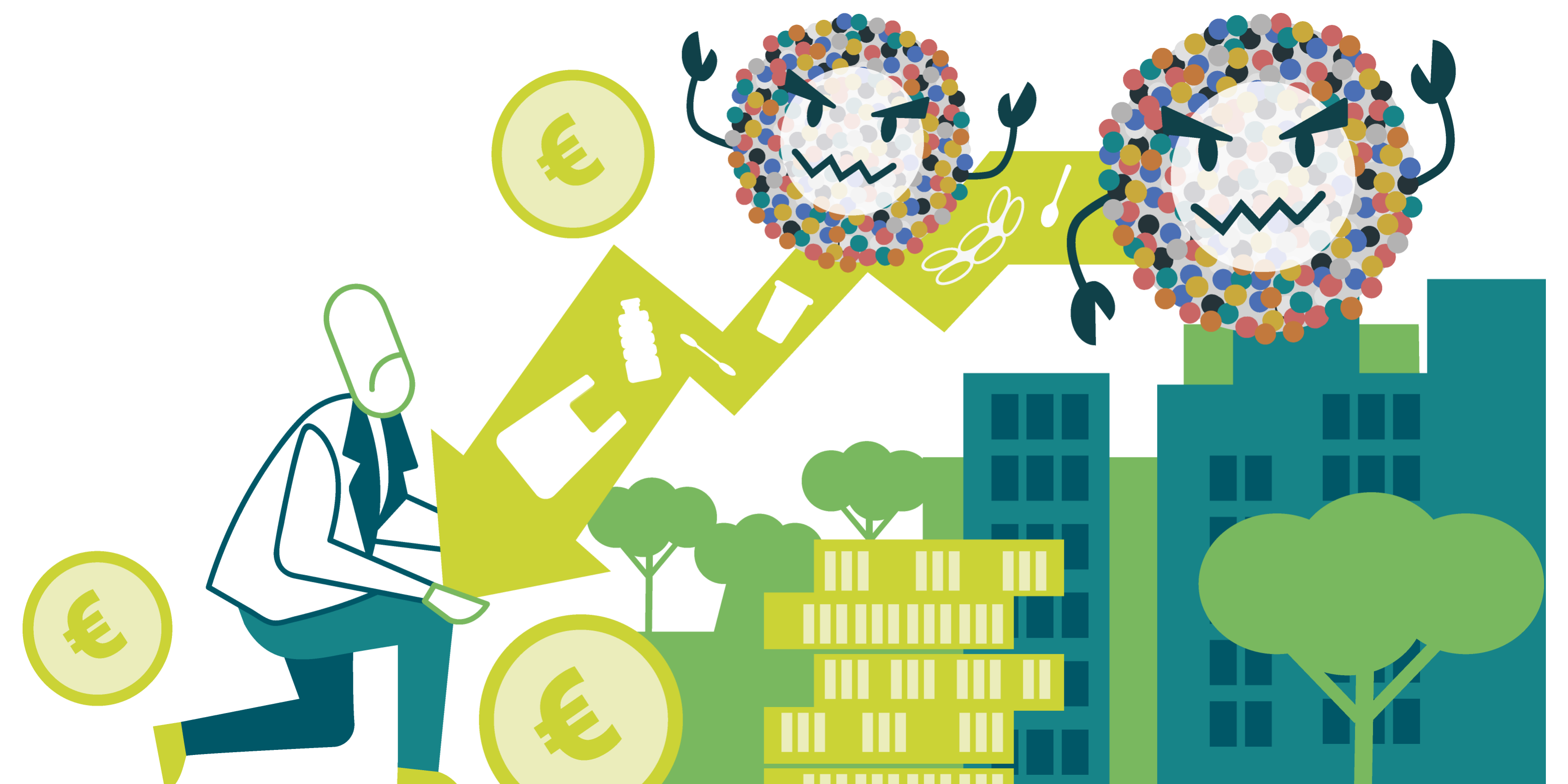Did you know that food packaging accounts for nearly half of the plastic used in Europe, yet less than half of it gets recycled?
This contributes to long-lasting environmental damage and economic losses that directly impact consumers and businesses alike. Understanding these implications empowers consumers to make more informed choices and advocate for sustainable packaging solutions.
Food packaging pollution is a critical global concern that affects not only environmental sustainability but also public health, economic stability, and future generations wellbeign, playing an important role on global warming.
In today’s fast-paced consumer culture, convenience and lower degrees of income within the general public often comes at the cost of environmental degradation, with single-use plastics dominating supermarket shelves and daily consumption habits. Food packaging accounts for a significant proportion of plastic waste worldwide, with millions of tons ending up in landfills, oceans, and natural ecosystems. According to MAGNO Project estimations, Europe alone sees packaging contributing to 44% of total plastic usage, yet less than half of it is effectively recycled.
Traditional business models, that does not address growing environmental concerns, as well as inefficient waste management system leads to severe environmental consequences, such as microplastic contamination in water bodies, harm to marine and terrestrial wildlife, and the exacerbation of climate change through greenhouse gas emissions from waste incineration. Additionally, the human health implications of food packaging pollution are alarming. Microplastics and chemical contaminants from degraded packaging materials have been found in drinking water, food products, and even human bodies, posing potential long-term health risks. Furthermore, the economic costs associated with food packaging pollution are extensive. Governments and municipalities are burdened with high waste management and cleanup expenses, as well as increasing public health costs, consumers bear with the indirect financial strain of resource depletion and health impact and business costs increase since there is a growing need to adapt to new regulatory measures aimed at reducing plastic consumption.
As awareness grows, within the unavoidable limits of income availability, consumers hold the power to drive change by making informed choices—opting for sustainable packaging alternatives, supporting circular economy initiatives, and advocating for stricter policies on plastic production and disposal. Ultimately, caring about food packaging pollution is not just an environmental issue; it is a collective responsibility that influences health, the economy, and the well-being of future generations. Consumers should be deeply concerned about food packaging pollution due to its significant environmental and health impacts. The MAGNO project highlights several key reasons for this concern:
Environmental Impact: A substantial portion of packaging waste consists of single-use plastic food packaging, which is a hallmark of the throwaway culture. This waste contributes significantly to environmental pollution, affecting soil, water, and air quality. In Europe, packaging accounts for 44% of plastic usage, yet only 40.8% of this plastic packaging is recycled. This leads to large amounts of plastic waste entering ecosystems, where it can persist for hundreds of years, causing harm to wildlife and natural habitats.
Health Risks: Improper disposal and handling of plastic packaging leads to higher percentages of plastic waste, which can pollute the environment in various scenarios. The packaging sector accounts for 40.5% of all plastic produced in Europe, representing the largest sector in the food industry. However, the recycling of such waste is critically low, at roughly 35%. Moreover, it has been estimated that over 20% of plastic packaging does not reach any recycling process, leading to environmental pollution that can affect human health.
Economic Consequences: The environmental damage caused by plastic pollution has significant economic implications. For instance, the costs associated with cleaning up polluted areas, addressing health issues related to pollution, and the loss of biodiversity can be substantial. Additionally, as governments implement stricter regulations on plastic usage, companies do not accept lower benefits and may pass increased production costs onto consumers. A report by Retail Economics and packaging company DS Smith identified UK supermarkets as the worst offenders in Europe for unnecessary plastic packaging, with 29.8 billion pieces of avoidable plastic waste generated annually. This equates to over 1,000 pieces per household, significantly higher than France, which uses plastic packaging in less than 60% of products due to strict regulations. The report highlights that 51% of UK supermarkets’ plastic packaging could be replaced with sustainable alternatives.
By understanding these impacts, consumers can make informed decisions to reduce their reliance on single-use plastics, support sustainable packaging solutions, and advocate for policies that mitigate food packaging pollution.
Consumers Should Care About Food Packaging Pollution. Take Action now!
To gain deeper insights into the real-world impact of food packaging pollution and explore actionable solutions, check out our Practice Abstract, where we delve into the latest research findings, practical recommendations, and innovative strategies that can help tackle this global challenge. Practice Abstract 1
The urgency of tackling food packaging pollution cannot be overstated—every moment we delay action, more plastic waste seeps into our environment, our food systems, and our bodies. This article marks the beginning of a vital conversation, but it’s only the first step. In the upcoming series, we will explore practical solutions, innovative sustainable packaging alternatives, and actionable strategies for individuals, businesses, and policymakers to combat this pressing issue.
It’s time to rethink our consumption habits, support brands that prioritize eco-friendly packaging, and demand stronger policies that hold corporations accountable for their environmental impact. Whether it’s reducing single-use plastics, advocating for circular economy initiatives, or spreading awareness in our communities, every effort counts. Join us on this journey to a cleaner, healthier planet—because the choices we make today will shape the world we leave for tomorrow. Stay tuned, get involved, and take action now!






